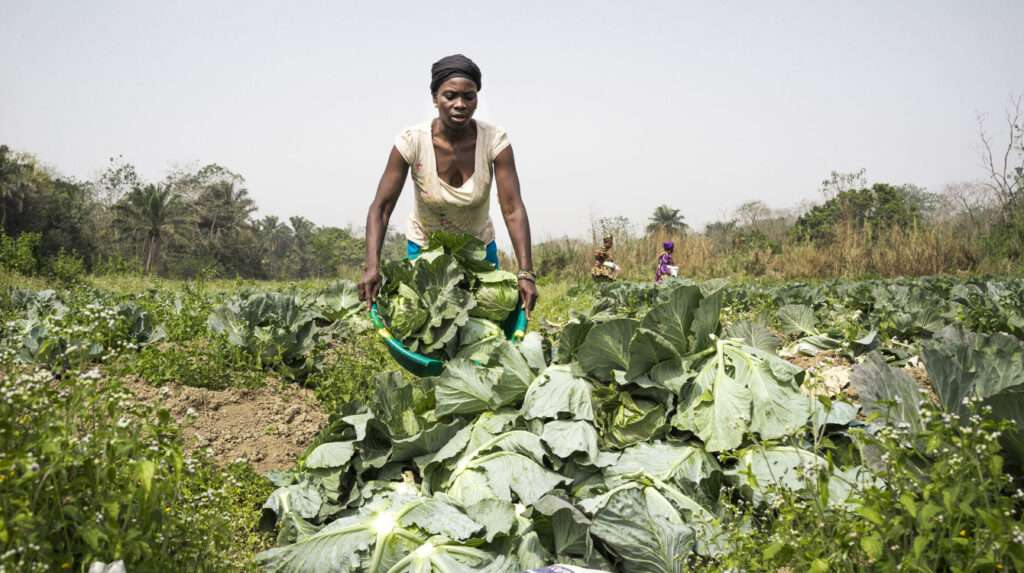- Imaginative agriculture concepts are essential to sustainable food production
- Women and youth are the most affected by climate change’s effects on agriculture
- Canada commits 20 million dollars to support smart agriculture in Tanzania
Smart agriculture is the only sustainable solution to food security and economic growth through commercial agriculture in Tanzania.
However, in Tanzania, economic losses from climate change impacts on agriculture are estimated to exceed $200 million yearly.
“The adoption of climate-smart agriculture (CSA) practices gives an opportunity to minimise such losses, create resilience in the agriculture sector, maximise productivity and farmer incomes, and contribute to climate change mitigation,” notes the World Bank.
Further still, if Tanzania is to adopt climate-smart agriculture, its focus must be on the livestock sub-sector, which is estimated to contribute the most to greenhouse gas emissions.
According to the World Bank, an increased focus on developing livestock-based programs is needed to support the country’s development trajectory toward zero emissions.
“Promosing climate smart agriculture practices identified for the country include increased fodder production, management in grazing practices, proper water harvesting techniques, agroforestry practices, conservation agriculture where necessary, and adoption of biogas energy power into farms,” writes the World Bank.
In a Climate-Smart Agriculture in Tanzania report, the World Bank cautions that minimal evidence of the impacts of some CSA practices in diverse agroecological systems and production inhibits their promotion and adoption in farms.
That being the case, Tanzania is advised that “Enhancing national and local knowledge and information on diverse CSA practices will be a crucial step towards proper targeting in the allocation of CSA investments, thus improving adoption.”
To this end, the Tanzania Climate-Smart Agriculture Alliance (TCSAA) has been formed, and the World Bank sees it as “…a promising opportunity for improved coordination, dialogue, and information sharing on CSA.”
However, if the platform is to succeed, financial, administrative, and technical support must be ensured.
“Many of the CSA practices identified in the country are site-specific, and hence, understanding the different socio-economic and environmental contexts across the country is important when designing scale-out strategies,” comments Climate Change, Agriculture and Food Security in a report.
CCAFS encourages climate-smart policies and practices that enable agriculture to achieve food security goal, climate change adaptation, and mitigation.
In Tanzania, the wider adoption of CSA technologies and practices can best be achieved by strengthening extension services that specifically address climate-related matters.
Tanzania will have to conduct farmer field trials for various CSA practices and increase access to CSA-related markets. If the country is to improve its monitoring, reporting, and verification of GHG emissions in the agriculture sector, capacity building on agricultural greenhouse gas inventories is also needed.
Read Also: Africa’s agritech potential crucial for economic growth.
Canada commits 20 million dollars to boost smart agriculture in Tanzania.
Through its agency, Global Affairs Canada, Canada has committed some 20 million Canadian Dollars to help Tanzania adopt and strengthen intelligent agriculture practices.
The funds are meant to empower women and youth in the agriculture sector to combat the adverse effects of climate change.
Canadian Minister of International Development Ahmed Hussen recently launched an ambitious project dubbed ‘Her Resilience, Our Planet’ that aims to empower women and youth in adaptation, mitigation, and transition to renewable energy in agriculture.
A media report released following the commitment specifies that Care Tanzania will coordinate the six-year project in collaboration with five other partners, including WWF, SAGCOT, TGNP Mtandao, Shahidi wa Maji, and the Conservation Farming Unit.
In his speech at the project’s launch, the Canadian Minister said they expect to reach over 175,000 smallholder farmers, particularly women.
The minister reiterated that women and youth are heavily affected by climate change.
“Canada has released the funds to enable them to adapt, mitigate, and transition to renewable energy,” the minister said.
Tanzania’s Deputy Minister of Agriculture, Mr. David Silinde, expressed his gratitude to the government of Canada for the grant. He said the project will support Tanzanian smallholder farmers and reflect the growing solid partnership between the two countries.
In line with the Deputy Minister, the project will be executed in the Southern Agricultural Growth Corridor of Tanzania (SAGCOT) clusters, including Iringa, Kilolo, Wanging’ombe, Mufindi, and Mbarali districts.
He said this comprehensive approach combine environmental sustainability, equality, and inclusion among farmers.
“It works towards creating resilience, minimising vulnerabilities, and promoting adaptive measures of communities while protecting human rights and addressing different inequalities,” he said.
Owing to climate change, there is great fluctuation in annual agriculture production reports the CGIAR.
“Agriculture and livestock rearing contribute about 11% of global emissions, and agriculturally-driven land use changes cause increase in emissions,” CGIAR reports.
The organization warns that by 2050, the growing global population, characterized by shifting consumption patterns, will require an additional 60% more food.
The report cites Climate-Smart Agriculture (CSA) as a concept reflecting the global ambition to incorporate agricultural advancements and climate change responsiveness.
According to the Bank, climate-smart agriculture initiatives sustainably increase productivity, enhance resilience, and minimize greenhouse gas (GHG) emissions.
“By addressing shortcomings in environmental, social, and economic enviroments across production landscapes, CSA practices and techniques coordinate the prime concerns of different countries to achieve more efficient food systems,“ the report reads in part.
In the Tanzanian context, adoption of climate-smart agriculture is agriculture will increase sustainablity, productivity, income, and build resilience to climatic changes, and improve food and nutrition.
Climate-smart agriculture practices align with Tanzania’s national economic development priorities, including commercializing agriculture as the basis for national development.
“While the Idea is new and still growing, many of the practices and techniques that make up CSA already exist in different parts of the world and are used by farmers to control various production risks,“ the report admits.
Through the mainstreaming of CSA, smallholder farmers in Tanzania and the entire East African region can hope to develop the agriculture sector in the face of worsening climate change effects every year.
